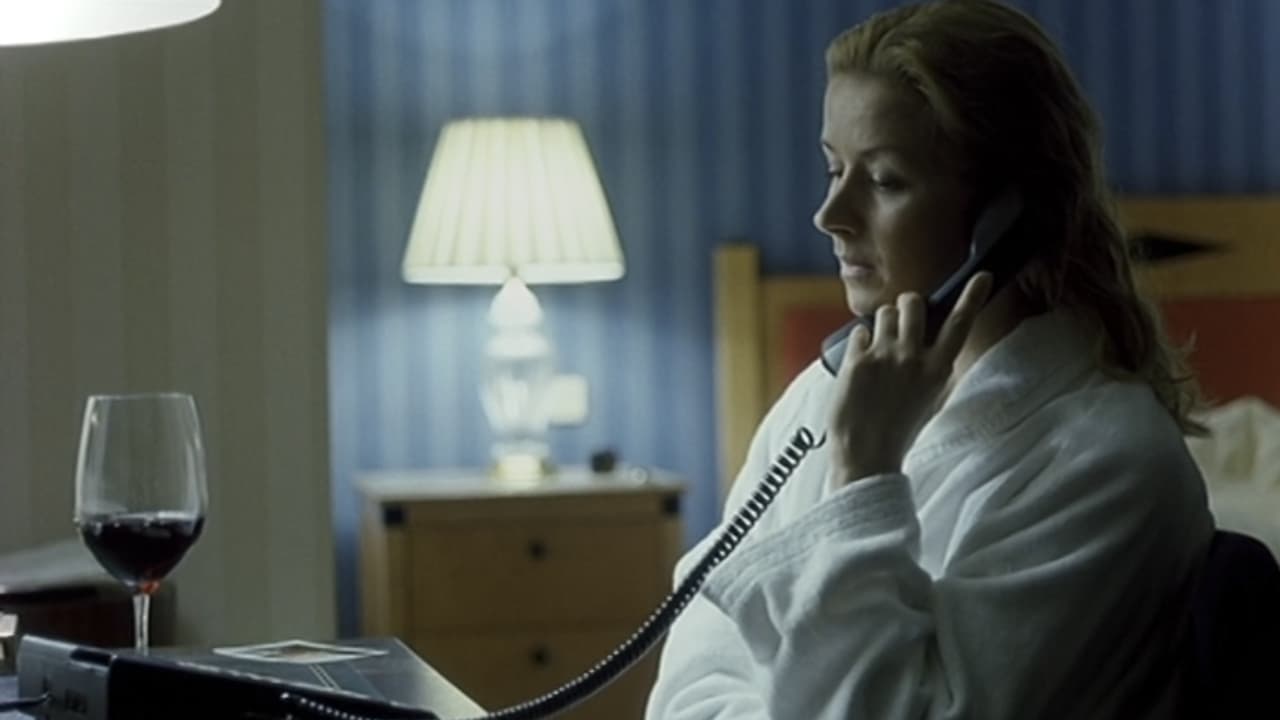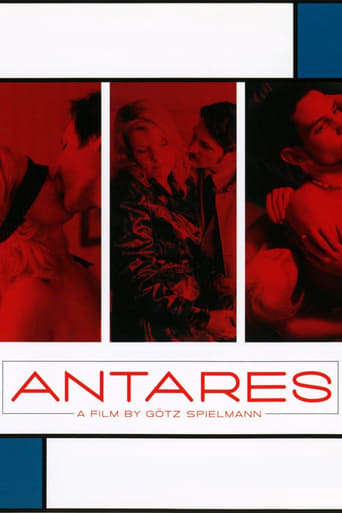

That was an excellent one.
... View MoreAlthough it has its amusing moments, in eneral the plot does not convince.
... View MoreEach character in this movie — down to the smallest one — is an individual rather than a type, prone to spontaneous changes of mood and sometimes amusing outbursts of pettiness or ill humor.
... View MoreIt is encouraging that the film ends so strongly.Otherwise, it wouldn't have been a particularly memorable film
... View MoreThere is comedy and tragedy, and I enjoyed it. There are beautiful women, and the men are true enough to real life. Cynicism is the theme. Coincidence is the necessary gimmick for tying the three soapers. It is a deep portrayal of modern folkways and mores. Because I as an American had to read subtitles, I missed many nuances. Deceit is certainly omnipresent. Human beings are imperfect, because nothing that I know is without a downside.It's a jungle out here.Human wrecks and car wrecks aren't rare.If you are happy, you ought not fool with cynically minded reviewers a la me, but thanks.It has been an awful 2016, and our new president will soon take power--rots of ruck.. This film is not happy ever after.This film isn't consoling nor redemptive.This film captures some of the absurdity of life, and that's why I like European portrayals of reality.This film is not warm and fuzzy nor phony, and does deserve the recognition it achieved.I am sure it bothers folks because it is so harsh.Unfortunately life is not a fairy tale.Warning, Hollywood corniness it ain't.They want ten lines, so I have to be redundant, and such finagling is about our reality too.
... View MoreGotz Spielmann is a true auteur. His film-making style is instantly recognizable, weaving a spell. What's going on in front of the camera can be merely someone shutting a door, a couple having explicit sex, a violent car crash, two people having an argument, but that camera is not moving. This makes you highly aware of everything in the frame and everything is there for a reason. You notice colors, especially white, black and red. Virtually no music, except some smoky sax over the credits. His constant use of medium shots remind you that you are not "there," you are just an observer.The movie portrays a highly contrived, but nevertheless convincing, story on the theme of sexual betrayal. Three couples who live in the same apartment building (but do not know each other) are introduced and their stories are told, one at a time. We meet a very reserved nurse and mother who is having a passionate affair behind her husband's back. Then, a supermarket checkout clerk, not emotionally stable, who has falsely told her Yugoslavian boyfriend that she is pregnant in hopes of hanging on to him. Finally, a divorced woman dealing with a racist and thuggish ex-husband who won't let go.As the movie progresses, odd events get explained. Once, a couple walking in the courtyard hear a woman scream. Later in the movie we see the scene of the screaming woman.The movie generates an enormous amount of suspense as it unfolds. Will the nurse confess to her husband? Will the checkout clerk come clean about her false pregnancy? Will the divorced woman be seriously harmed by her increasingly erratic ex-husband? As the last question, it is answered in a harrowing psychological confrontation that will have you on the edge of your seat. What people are eating and where they eat it also seems to matter.It leave it to others to explain the meaning of the roses in a vase, the dog trainer, the hooker on the corner and other apparent signifiers in the film.If you liked this, be sure to check out Spielmann's "Revanche," which is even better.
... View MoreThe events here take place in an ugly apartment complex in Vienna. But the exterior ugliness is nothing compared to the rotten people living there. We get to know three couples: a husband and his cheating wife, a very light skinned jealous blonde and her dark-skinned foreign boyfriend whom she makes believe she's pregnant, and a woman trying to break up with her violent husband. If this sounds like it would make for exciting drama, you'd disappointed. This is not a French or Italian movie. Instead we get to watch as these people go about being jerks and they do so rather silently. There isn't all that much dialogue here as the couples clearly don't understand each other and barely understand themselves. And the viewer quickly realizes that this movie will not go anywhere, hence, my reluctance to call them 3 "stories" as nothing really happens. Yes, there's a car crash that frames the entire movies at the beginning and end and given that someone dies in the crash, that opens up the possibility for things unraveling, settling. But that story isn't told here. We don't get to see the motivation for their actions either. The cheating wife, for instance, is engaging in what amounts a series of one night stands with the same man and even though their entire relationship centers on sex, their relationship is presented as if it is fulfilling some deep emotional need for her and yet the two rarely talk to each other. The lying girl, on the other hand, is surely willing to please her boyfriend, yet he cheats on her with an older woman for some reason, even though he seems to be thrilled to become a father. It will turn out that her jealousy is well founded because he is in fact cheating on her. The violent husband, who is also the funniest and most colorful character, is in such denial about their breakup, that episode is somewhat comical, as nothing the woman says can shake his conviction that they are supposed to be together because he loves her. The connections between the characters are somewhat forced and artificial. The cheater is a nurse, the liar is a clerk at a market where the nurse shops and runs into her often while smoking outside somewhere. The foreigner is cheating with the wife of the violent husband and will meet the nurse when his girl tries to commit suicide. Perhaps the one virtue of such a nihilistic movie is that it forces to viewer to seek meaning to fill the void and as such makes you ponder and try to get to the bottom of things or contemplate the possibilities. The DVD includes a great behind-the-scenes feature which is just that and nothing more. Unlike American movies where 10 minutes of behind the scenes is mixed with 20 minutes of movie scenes- as if watching the movie once weren't enough, this one is nothing but behind the scenes. Here you get to meet the director. And things become clearer. An ugly movie about ugly people can only be the product of an ugly man. And the writer/director is one ugly creepy little man. Surprisingly, there's even behind the scenes footage of the sex scenes. It's here of course that we learn all the little details and the meaning of each and what the director is up to. But that doesn't make the movie itself any more watchable. While these are all bad people doing bad things, it would seem that there are no victims, but there are children involved in 2 episodes and that does little to modify the people's behavior. The husband of the cheating wife also seems like an innocent victim here, although there's a scene of him watching his teen daughter for a long time as she dances in her room. That scene could be disturbing depending on how you interpret it, but fortunately, that is not developed.
... View MoreAntares gets its name from the ancient Greeks and means Anti-Ares. Ares is, of course, the God of War, also called Mars by the Romans. Antares is linked to the planet Mars because they are both about the same colour and brightness, so it is easy to get them confused. The official site tells us, "The film comprises three interconnected stories that are in a sense three 'Scorpio stories' with intense emotions, both positive and negative: sex, jealousy, violence, crisis and death." If you bear that in mind, it will give you a clue to the substance of this finely observed film, but the movie hooked me before I knew that, making fine comparisons that easily confound moral judgement.Antares begins with a car crash (one that takes us quite unawares) and continues an intense pace for the first third of the movie, including explicit sex scenes. But the first story is that of Eva, a nurse, wife and mother. She becomes involved in an intensely passionate affair. The second story concerns a check-out girl, obsessively jealous of her partner who pastes billboards for a living, and lying to him to ensure his 'love'. The final story concerns a divorced couple where the man will not let go and the wife has started seeing someone else. The three stories fully intertwine only at the end.Each story involves a couple and a third party, none are 'whiter than white'. But there are important differences, not least in how we view and judge them. Using 'truth' as a yardstick gets us nowhere as none of them are particularly honest although the most violent person (the abusive husband of the last story) is probably the least dishonest. In the first couple (a white collar family, listening to Schubert, raising a teenage daughter with love and care), we somehow feel that the infidelity is less 'wrong' than in the later example. It might even be the safety valve, without which the couple (who communicate politely but not very effectively) would have reached breaking point, hurting everyone but especially the child. In the second example, both partners are trying to control the other and we instinctively feel they are more selfish and less sympathetic. A yardstick becomes, who is hurt? What was the intention to hurt or nurture? Their motives to each other seem shallower, their methods more devious, they are less likable. They are also less interesting given that this film will appeal to a highbrow audience, do we judge them worse because they are poor and less intelligent? But then we see the third scenario a brutal, dangerous husband. Can the wife be blamed that she has 'moved on'? the husband is externally convincing, but we learn he has raped and beaten her and she is in fear of him. His 'reality' is a different one to hers. Compared to the billboard-poster, who seemed such a reprobate a minute ago, he is a monster.Notice how our perceptions and judgements of the characters are altered as well by the use of nudity in different ways, by the use of humour (a person seems less 'bad' when they are funny, irrespective of the facts), and by our comparisons with 'better' and 'worse' individuals. Trying to make moral judgements becomes a very confusing affair, but most people will be able to distinguish between the non-violent and almost loving deception of the first couple compared to the violent triangle of the last story. The effective attempt to 'do the right thing' in spite of overriding passions manifests itself differently.If you found movies like Closer intriguing as a moral primer, take Antares on for a more difficult conundrum. It takes someone of considerable skill to weave such a tapestry effectively, and Götz Spielmann distinguishes himself in Antares as a director of profound insight, considerable talent and great artistic integrity.
... View More